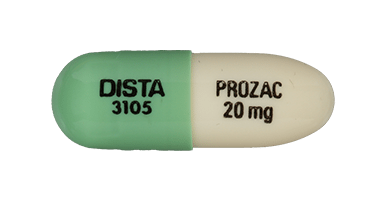SSRIs and Birth Defects
The American Congress of Obstetricians and Gynecologists estimates that between 14 and 23 percent of pregnant women struggle with some symptoms of depression. Untreated depression in pregnant women can pose serious risks for their babies. Selective serotonin reuptake inhibitors (SSRIs) can be used to treat depression in pregnant women. However, SSRIs may increase the risk of heart, abdominal, respiratory and other birth defects.
The U.S. Centers for Disease Control and Prevention reports that SSRIs account for more than 84 percent of antidepressants prescribed to pregnant women. SSRIs work by preventing receptors in the brain from reabsorbing already released serotonin, a neurotransmitter thought to be a contributor to feelings of happiness and well-being.
Paxil (paroxetine), Zoloft (sertraline) and Prozac (fluoxetine) are among the most common SSRI antidepressants prescribed to pregnant women to treat depression or anxiety disorders. Studies suggest women who take SSRIs while pregnant are at higher risk of having a baby born with several types of physical birth defects as well as autism or developmental disorders.
Symbyax combines the active ingredients in the SSRI Prozac and the antipsychotic Zyprexa. Both carry some risk of birth defects.
Most SSRIs fall under the U.S Food and Drug Administration’s Category C pregnancy risk. This means animal reproduction studies have shown adverse effects to animal fetuses, but there are insufficient studies of damage to human fetuses.
The one exception, Paxil, carries a Category D warning, which indicates positive evidence of human fetal risk based on clinical studies. However, doctors can still prescribe Paxil to pregnant women if they feel the need outweighs the risk.
As of 2022, there have been hundreds of lawsuits filed against drug makers by families alleging SSRIs are responsible for their children’s congenital anomalies. In 2010, GlaxoSmithKline, maker of Paxil, settled approximately 800 birth defect lawsuits for $1.14 billion.
Pregnant women dealing with depression or anxiety face a difficult decision: They can risk potential harm to their babies by taking SSRIs or face other possible dangers to themselves and their babies if the disease is left untreated.
Risks of Untreated Depression During Pregnancy
Depression is not just a sense of sadness or “feeling blue.” It is a serious medical condition that involves the part of brain chemistry that controls emotions and mood. Hormones can play a major role in affecting the balance of these brain chemicals and can trigger depression or anxiety. Women are at greater risk of depression during different points in their lives when they experience hormonal changes. Left untreated, depression in pregnant women can pose risks to developing babies.
- Premature Birth (before 37 weeks)
- May lead to bleeding in the brain, heart failure, eye damage and intestinal problems causing feeding issues that may require surgery
- Low birth weight
- Can result in problems later in life including diabetes, heart disease, high blood pressure and obesity
- Respiratory distress syndrome (RDS)
- May require treatment and oxygen therapy due to a lack of a necessary protein that prevents air sacs in the lungs from collapsing
- Lowered Apgar score (Cerebral Palsy risk)
- Could indicate a significant risk of cerebral palsy; Apgar score is used to summarize infant health based on respiration, muscle tone, reflexes, skin tone and heart between 1 and 5 minutes after birth
- Substance abuse-related birth defects or injuries (includes drugs, alcohol and tobacco)
- Depression can lead to substance abuse, which increases the risk for miscarriage, premature birth, developmental problems and birth defects
Without treatment for depression, pregnant women are also at risk of high blood pressure (preeclampsia), an increased chance of having a C-section, and continued depression after delivery (postpartum depression). In severe cases, some of these conditions may lead to miscarriage or suicide.
A range of emotions often triggered during pregnancy may make it more difficult to cope with depression and anxiety disorders for women previously diagnosed with these conditions.
Treating depression in pregnant women is critical to the health of both mother and child. However, it is important for women to understand that some of the most common drugs to address this mental health condition have been linked to an increased risk of birth defects.
The FDA urges women to carefully weigh the benefits and risks of taking antidepressants to treat depression during pregnancy.


CDC Study Links SSRI Use During Pregnancy to Increased Birth-Defect Risks
A 2015 study by the CDC published in the British Medical Journal (BMJ) found that birth defects occur 2 to 3.5 times more frequently among newborns of women treated with Paxil and Prozac early in pregnancy.
It did not find similar results for women treated with Zoloft. The study analyzed 17,952 mothers of infants with birth defects and 9,857 mothers of infants without birth defects.
The CDC study reassessed 12 years of data from the National Birth Defects Prevention Study, one of the largest collaborative case-control studies focused on factors that increase birth defects.
Using statistical analysis, researchers analyzed pregnant women taking SSRIs between 1997 and 2009 at 10 sites in the U.S., comparing women who had a baby with a birth defect to those who did not.
Researchers confirmed links between Prozac and two types of birth defects. They also confirmed links between Paxil and five types of birth defects.
Birth defects linked to Prozac include:
- Heart Defects
- Specifically ventricular tract obstruction, where either the right or left ventricular outflow tract of the heart is blocked or obstructed.
- Craniosynostosis
- One or more fibrous joints in an infant’s skull fuse together.
Birth defects linked to Paxil include:
- Anencephaly
- Baby is born missing a portion of the skull, brain and scalp.
- Atrial Septal Defect
- Hole exists in the heart wall between the heart’s upper chambers.
- Ventricular Tract Obstruction
- Outflow tract of the heart is blocked.
- Gastroschisis
- The baby’s intestines stick outside the body through a hole near the belly button.
- Omphalocele
- Some of the bowels herniate out into the umbilical cord and remain outside the abdomen after birth.
The most common defects confirmed in the study were the various heart and abdominal wall conditions associated with SSRIs. These can be life-threatening and may require surgery to correct.
Previous studies had reported links between Zoloft and birth defects, but the CDC study did not confirm any links to that drug. Zoloft was the most prescribed SSRI among the patients in the study.
Celexa (citalopram) and Lexapro (escitalopram), two similar SSRIs manufactured by Forest Laboratories, were the least commonly used antidepressants in the study population, and researchers did not find any definitive link between those two drugs and birth defects.
Other studies refute these findings, suggesting untreated depression and anxiety disorders put mothers at equal or higher risk of serious complications. Most experts think that while SSRIs can increase the risk of birth defects, the chance of giving birth to a child with a congenital disorder remains low.
Other Birth Defects Associated with SSRIs
Aside from heart and abdominal wall defects identified in the CDC study, some of the most common birth defects associated with SSRIs include persistent pulmonary hypertension of the newborn (PPHN), respiratory distress and cleft palate or lip. Some studies have also linked autism to SSRI use.
Persistent Pulmonary Hypertension of the Newborn
While in the womb, a fetus receives oxygen from the mother through the umbilical cord. Normally, the baby’s lungs begin taking in oxygen immediately after birth. In a baby born with persistent pulmonary hypertension of the newborn (PPHN), the circulatory system does not switch over to breathing air. Instead, the blood flow continues to bypass the lungs, depriving the vital organs of oxygen.
Common symptoms of PPHN include quick breathing (tachypnea), rapid heart rate (tachycardia), sluggish behavior and a blue tint to the skin (cyanosis).
In 2006, the FDA issued a Public Health Advisory warning of the potential risk of PPHN in babies of mothers who took antidepressants during pregnancy. But the agency issued a follow-up in 2011, noting that subsequent studies had clouded the PPHN issue and that health care professionals should not alter their current clinical practice of treating depression during pregnancy.
A 2014 study published in the BMJ found more evidence that SSRIs taken during pregnancy increase the risk of PPHN. Specifically, researchers found that babies exposed to this class of antidepressants during the late stages of pregnancy were at increased risk of PPHN.
Respiratory Distress
In general, about 7 percent of newborn babies experience respiratory distress syndrome (RDS) — or trouble breathing. But for babies born to mothers who took an antidepressant during the third trimester, the percentage can escalate.
In its prescribing information, the manufacturer of Prozac — Eli Lilly & Company — actually warns patients that babies exposed to Prozac in the third trimester have developed respiratory distress.
- Temperature instability
- Feeding difficulty
- Vomiting
- Jitteriness
- Irritability
- Seizures
- Hypoglycemia
- Bluish discoloration of skin (Cyanosis)
Severe respiratory distress can also be a symptom of a PPHN.
Doctors can treat babies who have RDS by increasing the oxygen levels either through a nasal tube or a ventilator. Both methods have to be closely monitored because too much oxygen can cause blindness and too much pressure can further damage the baby’s lungs. Drugs used to treat respiratory distress — called surfactants — can also be administered through a tube in the baby’s windpipe.
Cleft Lip and Palate
A 2011 case study of SSRIs taken during the first trimester of pregnancy found a link to birth defects associated with serotonin-related genes. Cleft palate is one of those related defects.
Researchers found that a mother’s exposure to SSRIs can inhibit fetal growth, especially in the first two months when the fetus’ head forms. During this process, the upper lip develops before the palate, or roof of the mouth.
When an antidepressant crosses the placenta, it can interfere with the normal growth of a fetus. This can result in a cleft lip or cleft palate — facial gaps that are produced when these parts of the face do not fully fuse.
The CDC estimates that around 7,000 babies are born with either cleft lip or cleft palate each year in the U.S.
Autism
Researchers are studying not only physical birth defects, but also the long-term neurological effects of SSRIs on individuals who were exposed to the drug in the womb. Autism diagnoses are on the rise in the U.S., and doctors are now studying how medications affect a fetus’ development.
The association between the use of SSRI drugs during pregnancy and autism spectrum disorder (ASD) in offspring remains highly contested.
A 2015 study found that SSRIs taken during the final two trimesters of pregnancy almost doubles the risk of babies developing autism. All types of antidepressants increased the risk by 87 percent. The study by University of Montreal researcher Anick Berard was published in JAMA Pediatrics.
Berard reviewed more than 145,000 pregnancies that resulted in conditions on the autism spectrum in 1,054 children.
She said that because SSRIs work by inhibiting the brain chemical serotonin in the mother, it had the “negative impact on the ability of the brain to fully develop and adapt” in affected fetuses.
However, critics of the report claim that the study doesn’t take into consideration that parental psychiatric illness itself is associated with an increased risk of ASD. Two studies published in 2013 controlling for these factors found no significant association between parental exposures to antidepressants and ASD.
Dangers of Discontinuing Antidepressants During Pregnancy
Anyone taking SSRIs or other antidepressants should never stop taking the drugs abruptly. This can result in serious withdrawal symptoms and side effects that include severe depression and increased risk of suicide.
Patients who wish to stop taking antidepressants should always talk to their doctor about the safest way to gradually lower the dosage over days or even weeks.
Even switching from one antidepressant to another can cause complications and should be carried out cautiously under the close observation of a doctor.
Other complications of stopping antidepressant use can include flu-like symptoms, sleep problems, anxiety, irritability, headache, stomach cramps and dizziness.
In a 2006 study, 68 percent of women who discontinued use of SSRIs experienced a relapse of major depression, compared to 26 percent of pregnant women who maintained their medication throughout their pregnancy.
Pregnant women stopping antidepressant therapy may experience thoughts of terminating a previously desired pregnancy.
If you are pregnant or plan to become pregnant and use SSRIs, it is important to consult with your doctor to understand and carefully weigh the benefits against the potential risks of the medications.
Calling this number connects you with a Drugwatch.com representative. We will direct you to one of our trusted legal partners for a free case review.
Drugwatch.com's trusted legal partners support the organization's mission to keep people safe from dangerous drugs and medical devices. For more information, visit our partners page.


